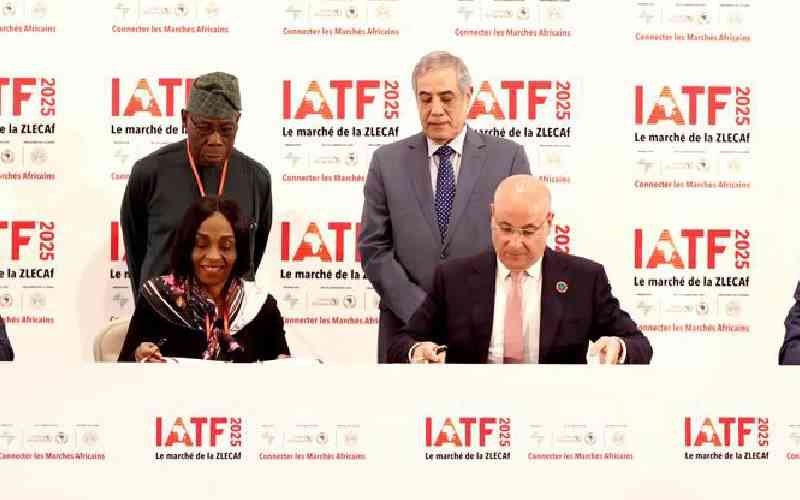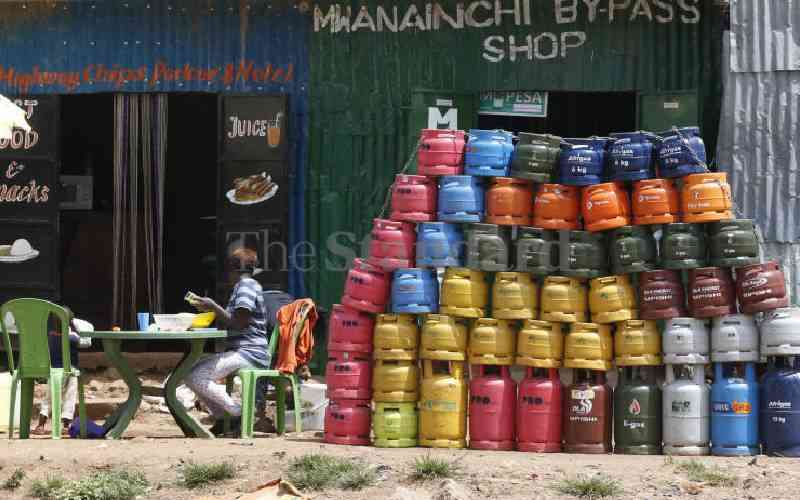The move to have a 960 megawatt coal plant in Lamu hangs in the balance, after one of the bidders claimed it had won the tender that was awarded to Gulf Energy Consortium. It cites irregularities in the tendering process. Hebei Construction Investment Group (HCIG) and Liketh Investment Kenya, through their consortium HCIG-LIKETH in documents before the Petition Committee say Gulf Energy Consortium was never in the scene but it won the tender.
The company adds that Gulf Energy Consortium would produce power at higher cost considered to the one it (HCIG-LIKETH) had proposed in its bid papers, adding that the rival firm first ought not to have been given the contract in the coastal region.
In the documents filed by HCIG-LIKETH in support of their claim, Gulf consortium will channel power into the national grid at a cost of Sh59.8 billion per year compared to its Sh43.4 billion per year - which is Sh16.4 billion higher that had been proposed in the tender document.
KEY WORKS
The two companies are charging the tax payers Sh24 billion and Sh32 billion annually for putting up the infrastructure in the Lamu power plant in which the consortium composed of Gulf Energy, Sichuan Number Three Electric Power Construction, Suchan Electric Power Design and Consultancy Company, Centum Investment Company Ltd and CHD Power Plant Operation Company being on the higher grid.
“One of the underlying consideration in the entire bidding process was the matter of affordability and that unnecessary burden should never be imposed on the end user. In line with this the petitioner (HCIG-LIKETH) had the lowest Base Capacity charge which was one of the most fundamental parameters to be considered in the Public Private Partnership project,” HCIG-LIKETH says in its suit papers filed by J. Thongori and Company Advocates.
The initial bidders were 26. The ministerial tender committee went through the documents submitted by the companies and nine passed the technical requirement stage.
In the initial stage, Centum, had expressed its interest but was thrown out. Centum had initially partnered with Sepco and Thermax, but the consortium was knocked out of the expression of interest stage.
Another partner in the same consortium (Gulf), Tata Power had made two entries in that bid though it went to the next stage to measure who would bid the lowest in terms of cost.
According to the Public Private Partnership Act (PPPA) section 46 rule four, a person who is a member of a consortium cannot submit a bid, whether directly or indirectly or through another consortium or a company which submits a bid and in the case of a company if that person owns majority shareholding or has control over its management.
Tata formed the first consortium with Gulf and Centum and later exited the scene. HCIG in its case argues that this would have led to Gulf consortium being disqualified in accordance with PPPA section 46.
It argues that Tata ought to have been out of the power game in the first assessment as it had double bidded and that both Tata and Centum could not have been allowed to merge again and get in the process in another group.
LEGAL ADVICE
According to the Ministry of Energy Principal Secretary Eng Joseph Njoroge, in his affidavit defending how Gulf Energy won the tender, the withdrawal of Tata from Gulf which it did in March 20, 2014 was within the law provided in the PPPA.
He said he had sought legal advice from the Attorney General Githu Muigai and Public Private Partnership Unit on the issue in which they advised him that it was well within the legal provisions governing the tendering process. “The Ministry of Energy and Petroleum wrote to the Gulf-Centum Consortium to submit the bona-fides of the replacing members so as to determine whether after replacing the departing members the consortium would still remain eligible,” Njoroge said.
The reconstituted Gulf consortium, according to Njoroge was vigorously evaluated and found to have been the preferred institution for the next power energy face that is deemed to lower the cost of power in which will effectively be felt by the consumers. Gulf Energy CEO Francis Njogu also defended its return to the race, saying that the law allows a bidding consortium to replace members that have stepped down.
“By a letter dated February 25, the Centum-Gulf consortium wrote to the ministry seeking approval to replace Cennergi, which had withdrawn. By its letter dated March 14, the ministry requested the Centum-Gulf consortium to submit bona fides of the replacing members,” Njogu said.
In test is section 46 rule six and seven in which rule six provides that where a member withdraws from the consortium the contracting authority may disqualify that consortium from participating in the bidding process or review the terms and conditions of a project agreement entered into with the consortium.
Further, the same section rule seven provides that rule six cannot apply where the consortium replaces the member who withdraws with another party so as to ensure that the consortium remains eligible throughout the tender and implementation process except for construction and design criteria at the later stage of the project.
NO COMPLAINTS
According to HCIG-LIKETH in its case, Gulf ought to have also exited from the bid through this rule. But Njoroge in his reply to the claim said the ministry had not received any complaint from the bidder regarding the reconstitution of Gulf Energy.
Njoroge says that the Ministerial Tender Committee decision saw Gulf Consortium bag a Sh174 billion deal to construct the plant. “The Ministerial Tender Committee at its meeting on December 5, 2013 approved the re-evaluation of seven unsuccessful bidders. The re-evaluation committee checked the unavailability of documents by considering both the hard and soft copies which had been submitted,” Njoroge said.
Another twist in the suit between the two companies is the case filed challenging the composition of the petition committee. The basis of the case before High Court Judge, Justice Isaac Lenaola is that the team did not meet the constitutional threshold as it only composed of two tribes.
HCIG last week managed to bar the Government from signing the deal with Gulf Consortium before this case before committee is heard and determined.
Justice Mumbi Ngugi in her ruling noted, “Pending the hearing and determination of the case before the petition committee, conservatory orders are hereby issued restraining the respondents from dealing, signing or approving the tender,” she ruled.
 The Standard Group Plc is a multi-media organization with investments in media
platforms spanning newspaper print operations, television, radio broadcasting,
digital and online services. The Standard Group is recognized as a leading
multi-media house in Kenya with a key influence in matters of national and
international interest.
The Standard Group Plc is a multi-media organization with investments in media
platforms spanning newspaper print operations, television, radio broadcasting,
digital and online services. The Standard Group is recognized as a leading
multi-media house in Kenya with a key influence in matters of national and
international interest.
 The Standard Group Plc is a multi-media organization with investments in media
platforms spanning newspaper print operations, television, radio broadcasting,
digital and online services. The Standard Group is recognized as a leading
multi-media house in Kenya with a key influence in matters of national and
international interest.
The Standard Group Plc is a multi-media organization with investments in media
platforms spanning newspaper print operations, television, radio broadcasting,
digital and online services. The Standard Group is recognized as a leading
multi-media house in Kenya with a key influence in matters of national and
international interest.









